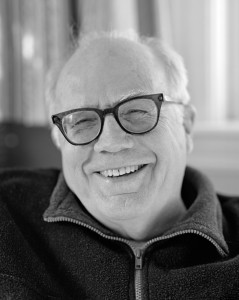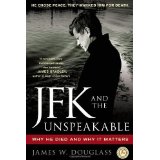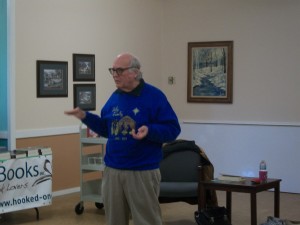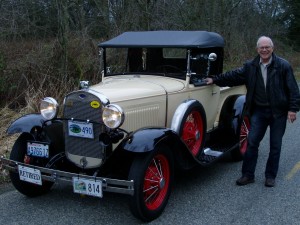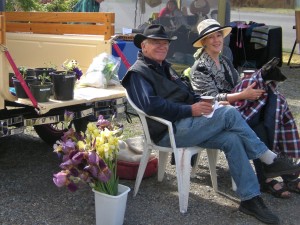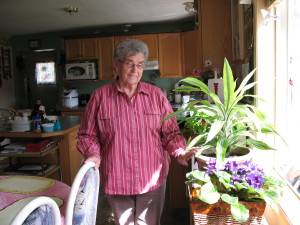Until the day of her birth, the world was a relatively stable place.
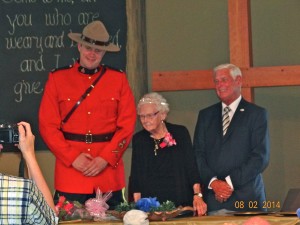
People pretty much trusted their government to get things right and to keep them safe. Communication systems were not as sophisticated as today and when there were contentious issues in other parts of the country, most people were blithely unaware. They needed to focus on earning a livelihood and raising large families.
On August 4,1914, the day Mary Agnes Roberts was born, the conflagration we know as WW I erupted. From that point on, change accelerated and the globe seemed to shrink.
Mary Agnes was the first to ride a bicycle (wood rims) on her block. Her family owned the first radio. Music was played on a hand turned gramophone. Ladies wore pantaloons for swimming.
She was still a pre-teen when Henry Ford introduced his revolutionary Model T in 1924, and then the more advanced Model A.
As a young woman of 25 she fell in love and married George Roberts. They were like-minded in many ways and had almost 26 years together. Their happy marriage ended abruptly when he suffered a heart attack and passed away. This made it necessary for Mary Agnes to develop the character and strength to carry on, in a time when society did not yet have an advanced network of supports for women living without a mate. She did not feel entirely bereft, however. “My husband gave me two wonderful children,” she said. “They have been a great support to me all these years.” In spite of having lost her husband, she was determined to make a difference, especially in her family.
Until a few days before her birthday, one of the remaining items on her “bucket list”, was to ride on a motorcycle. Grandson Tim Roberts has a bike and was delighted to make this wish a reality. Once she had mounted the passenger seat, with the help of 2 men, she expected they would go in a straight line. She was startled when Tim turned the bike around to return to their starting point. Although they stayed on the parking lot of the longterm care residence, she was pleased
At the August 2nd birthday celebration, it was noted that she had made the first financial contribution to the One Way Adventure Foundation. This organization, established to work with troubled teens, was founded by her son Len, and daughter-in-law Jean.
Nearly 100 friends and family members came to the party.Constable Anthony Pankratz, a 6 foot 8 inch Mountie wearing the traditional Red Serge and Stetson, held her left arm as she walked with careful steps to the front of the Baptist church in Princeton. On her right side was Princeton Mayor, Frank Armitage. During the program, messages were read from the Queen, the Governor General of Canada, Premier Christie Clark, John Horrigan, Leader of the Opposition, and other dignitaries.
Toward the end of the celebration, Len invited guests to speak briefly of experiences with Mary Agnes. Several grandchildren expressed appreciation for her many prayers for them. They said, “ this has made a positive difference in our lives”.
Mary Agnes was a member of the generation that contributed significantly to the creation of Canada as we know our nation today. In her personal life she was sustained by her faith in God, the support of her family, and her determination to not stray from the good path she had chosen many years ago. She is inwardly strong, wonderfully resilient, and she possesses a great clarity of purpose.
By her words and example, she has pointed her family and many of us to a path that promises a life of significance and hope. Congratulation Mary Agnes, on 100 productive years!



